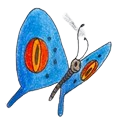In an age when creativity is increasingly valued, children’s stories are an effective instrument for igniting young minds. Children can improve their creative thinking skills in fun and educational ways by immersing themselves in bright characters, beautiful worlds, and captivating narratives.

This blog is your guide to understanding how children’s books can inspire creativity in young readers.
The Power of Imagination: How Stories Spark Creativity
Children’s stories are more than just entertainment; they open up a world of endless possibilities. When children engage with a tale, they begin on a trip that takes them to new and exciting places. This investigation of magical worlds and remarkable adventures encourages children to envisage scenarios outside their daily experiences, broadening their creative horizons.
Children learn to see and conceptualize new objects as they meet different settings and situations. This visualization is an important part of creative thinking because it enables youngsters to generate mental images and ideas that serve as the foundation for invention and uniqueness.
Character Development: Learning to Think Outside the Box
When youngsters read about varied characters and their own adventures, they learn to see the world from new perspectives. These characters frequently encounter challenges that demand them to think imaginatively in order to overcome obstacles. This exposure to other ways of thinking helps children learn the value of thinking outside the box while also developing empathy and innovative problem-solving skills.
Reading about characters from diverse backgrounds, talents, and perspectives allows youngsters to examine other options and solutions. This broadens their perspective on the world and helps them appreciate diversity and complexity.
Interactive Storytelling: Engaging the Creative Mind
Interactive storytelling strategies, such as asking youngsters to guess what will happen next or encouraging them to come up with alternate endings, can help kids think more creatively. These exercises make reading a more dynamic and interactive experience.
When children are encouraged to actively participate in the story, they become co-creators of the narrative rather than passive listeners. Predicting future occurrences in a novel allows children to utilize their imagination and evaluate numerous options.
Creating Their Own Stories: Empowering Young Authors
Encouraging children to make up their own stories is an excellent method to foster their creativity. They not only improve their writing and communication skills by creating their own storylines, but they also learn to convey their own ideas and imagination. This storytelling method teaches them about tale structure, such as beginning, middle, and finish, as well as character development and plot progression.
We can help youngsters develop crucial skills for life by instilling a love of storytelling and artistic expression in them. Encouraging creative thinking in children’s stories not only makes learning more pleasurable but also prepares them to be original thinkers and problem solvers later on.
If you are looking for a compelling children’s fiction book, ‘DifferAnt the Overcomer‘ by Nana Vaughn is a treat for you. The story revolves around DifferAnt, a tiny ant who stands out in his colony for all the right reasons. Despite facing teasing and discrimination from his peers, DifferAnt never wavers in his resolve to embrace his uniqueness. Through his journey, he learns invaluable lessons about self-acceptance, resilience, and the importance of standing up to bullies.
Guiding him through every challenge is his wise mentor, Mrs. IntelligAnt, whose words of encouragement fuel DifferAnt’s determination to forge his own path. Their bond exemplifies the power of mentorship and self-discovery.
Join DifferAnt on his inspiring quest, where every setback becomes an opportunity for growth and every difference a source of strength. Through his story, we learn the profound impact of kindness, empathy, and embracing diversity. Take a stand with DifferAnt and let his tale remind us all to celebrate our differences and champion acceptance. Dare to be different, dare to be DifferAnt!
